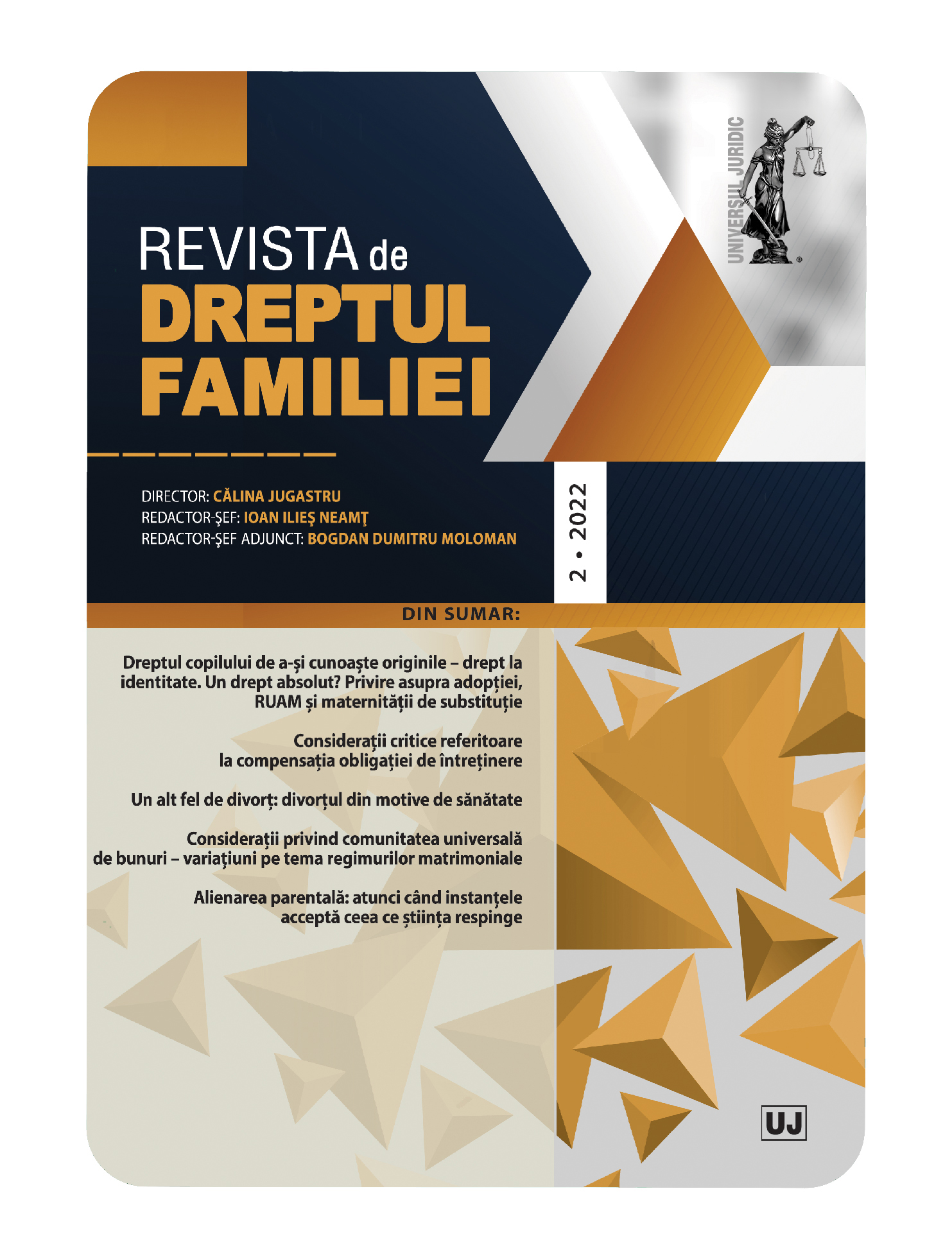Divorţul – despre despărţire şi alte patimi în istoria dreptului românesc
The divorce – about separation and another troubles in history of Romanian Law
Author(s): Gabriel Ciprian StegărescuSubject(s): Law, Constitution, Jurisprudence, History of Law, Civil Law, Comparative Law
Published by: Universul Juridic
Keywords: divorce; dowry; the old Romanian law; byzantine law; dicastery;
Summary/Abstract: Regarded today as a daily thing, divorce had a tumultuous history in the old Romanian law. The religious element played an important role, and this led to unique situations, especially due to the combination of laic and ecclesiastic law. Over time, divorce has been viewed with either scepticism or nonchalance depending on the social class from which the parties came, but also the era in which it took place. If in the first part of the Middle Ages, it was regulated in a generic way, at the level of common law, in the last part of the Middle Ages, it benefited from a careful regulation, through the laws and rules of the Romanian rulers. With the advent of written law, the first imperative grounds for divorce appear. However, at the dawn of modernity, divorce had become a daily occurrence, so that the law was interpreted in favour of the parties requesting the dissolution of the marriage, reaching, in most cases, its disregard. The enforcement of the old Civil Code represented an important moment in the evolution of the divorce institution, by enacting clear and concise rules, but also by passing it from the exclusive competence of the clergy to that of the state. The influences of the old Byzantine law would disappear, the new regulation being inspired by the laws of the most important European states. In the following, we will expose some features of the divorce institution, showing the sinuous path that it has taken over the centuries.
Journal: Revista de dreptul familiei
- Issue Year: 2022
- Issue No: 2
- Page Range: 242-258
- Page Count: 17
- Language: Romanian
- Content File-PDF

